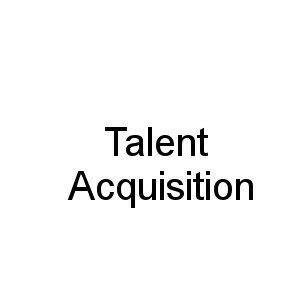Future Manager World - Singapore, Indonesia and Malaysia
Planning Future - Acting Present
One single simple Mission: supporting Companies HR needs Worldwide
APAC - EMEA - IMEA - LATAM - USA & North America
Singapore, Indonesia and Malaysia

Adam Price is 49 years old. He lives with his family in Asia and spends his time between his home in Indonesia and Singapore where he founded and runs the Singapore licensed recruitment company Fortitude Partnership.
Educational Background
Adam holds a BA (Hons) Degree from The University of Derby.
In additional to his academic and vocational qualifications Adam is also a qualified Group Fitness Instructor, Spin Instructor and Les Mills RPM Instructor.
Managerial Background
Professional Recruitment Sales and Operations Director with more than 25 years of experience providing bespoke recruitment solutions to Education, Power, Renewable Energy, Capital Markets, IT&T, Life Sciences, Engineering, Oil & Gas, Property, and Construction Industries.
Has successfully managed startups from concept to sale in addition to established Oil and Gas specialist recruitment business with overall responsibility for more than 100 staff across 11 offices in 9 countries with a US$100m+ regional turnover.
"C" Level expert headhunter conducting retained and contingent searches in the technical IT, Education, Telecommunications, Life Sciences, Engineering, Construction & Property markets. Notable placements of CEO, CIO, CTO, COO, Directors, and Vice Presidents with medium to very large global industry leaders.
Adam was an inaugural APSCo Asia Executive Committee member and contributor.
Entrepreneurial Background
Adam is the founder of Fortitude Partnership and has been involved in start ups in the Renewable Energy sector and in Training and Development.

Adam Price
Ready to find out more?
Contact us today and talk with our Singapore, Indonesia and Malaysia Global Expert!
Planning Future
Capabilities:
Corporate: Entrepreneurial Succession, Managerial Succession, Change Management, Compensation & Benefit Analysis, Management Relocation, International Employer Branding planning
Talent Acquisition: C-Level Executive Search, Middle Management Executive Search, Existing top and/or existing middle potential assessment programs, Pre-employment aptitude and personality testing programming, International Graduate Recruitment Programs
Flexibility: Temporary Management, HRPO Human Resource Process Outsourcing, RPO - Recruiting Process Outsourcing, White Collar Outsourcing, Payroll Calculating
Training - Future Manager Business School
Industries:
Financial: Private Banking, Investment Fund, Banking Technology, Corporate Banking, M&A, Consumer Financing, Mortgage
Industrial: Aeroespacial, Automotive, Agribusiness, Aviation, Chemical, Energy, Building, Manufacturing, Oli & Gas
Hi Tech: Software Networking, Telecommunications, Platforms
Roles and Functions:
Board: Ceo, Indipendent board member
Financial: Global Chief Financial Officer, Global Chief Treasury Officer, Global Chief Controlling Officer, Country Chief Financial Officer, Country Chief Treasury Officer, Country Chief Controlling Officer
Marketing: Global Chief Strategic Marketing Officer, Global Chief Operational Marketing Officer, Country Chief Strategic Marketing Officer, Country Chief Operational Marketing Officer,
Sales: Global Sales Officer, Country Sales Officer
Supply Chain: Global Chief Supply Chain Officer, Country Chief Supply Chain Officer
Human Resources: Global Human Resource Director, Global Recruiting Director, Global Development & Training Director, Country Human Resource Director, Country Recruiting Director, Country Development & Training Director
Information Technology: Global Chief Information Officer, Global Chief Digital Information Officer, Global Chief Technology Officer, Country Chief Information Officer, Country Chief Digital Information Officer, Country Chief Technology Officer











